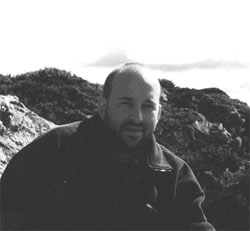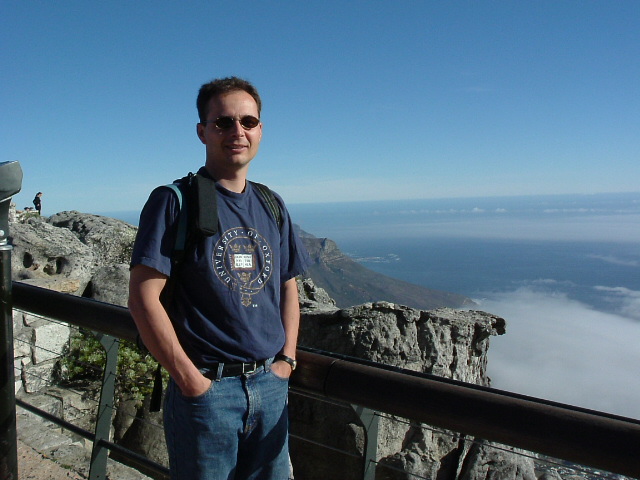- Comments are moderated. Comments are periodically reviewed, but especially at weekends, evenings and holidays, there may be some delay in approving otherwise non-contentious posts. Please be patient.
- Questions, clarifications and serious rebuttals and discussions are welcomed.
- Only comments that are germane to the post will be approved. Comments that are “off-topic” should be made on an open thread (usually entitled “Unforced Variations”), and we may move OT comments to those threads.
- Comments that contain links to inappropriate, irrelevant or commercial sites may be deleted.
- Discussion of non-scientific subjects is discouraged.
- No flames, profanity, ad hominem comments are allowed. This includes comments that (explicitly or implicitly) impugn the motives of others, or which otherwise try to personalize matters under discussion.
- We reserve the right to make spelling corrections, correct text format problems, etc.
- We use moderation to improve the “signal to noise” in the discussion. For this reason, we may choose to screen out comments that simply repeat points made in previous comments, make claims that have already been dealt with or that “muddy the water” by introducing erroneous, specious, or otherwise misleading assertions. These comments may be sent to “The Bore Hole“.
- We reserve the right to either reject comments that do not meet the above criteria, or in certain cases to edit them in a manner that brings them into accordance with our comments policy (e.g. by simply deleting inflammatory or ad hominem language from an otherwise worthy comment). In cases where we do this, it will be noted by an [edit].
- Given that RealClimate represents a volunteer effort by about 10 different contributors, each of whom are free to participate in queue moderation, the items indicated above only constitute the basic ground rules. We cannot insure uniform application of the various considerations listed above from one individual comment to the next.
- Quick responses to questions that don’t merit a full post will be placed in-line (with credits).
- All comments are assumed to be released into the public domain.
- Comments generally close after a month.
- Repeat violators of our comments policy (in particular, individuals demonstrating a pattern of “trolling”) may be barred from future access to the blog.
revised 01/06/11
 Gavin Schmidt is a climate modeller at the NASA Goddard Institute for Space Studies and Earth Institute at Columbia University in New York and is interested in modeling past, present and future climate. He works on developing and improving coupled climate models and, in particular, is interested in how their results can be compared to paleoclimatic proxy data. He has worked on assessing the climate response to multiple forcings, including solar irradiance, atmospheric chemistry, aerosols, and greenhouse gases.
Gavin Schmidt is a climate modeller at the NASA Goddard Institute for Space Studies and Earth Institute at Columbia University in New York and is interested in modeling past, present and future climate. He works on developing and improving coupled climate models and, in particular, is interested in how their results can be compared to paleoclimatic proxy data. He has worked on assessing the climate response to multiple forcings, including solar irradiance, atmospheric chemistry, aerosols, and greenhouse gases.  Dr. Michael E. Mann is Presidential Distinguished Professor in the Department of Earth and Environmental Science at the University of Pennsylvania, with a secondary appointment in the Annenberg School for Communication. He is director of the Penn Center for Science, Sustainability, and the Media (PCSSM).
Dr. Michael E. Mann is Presidential Distinguished Professor in the Department of Earth and Environmental Science at the University of Pennsylvania, with a secondary appointment in the Annenberg School for Communication. He is director of the Penn Center for Science, Sustainability, and the Media (PCSSM). Caspar Ammann is a climate scientist working at the National Center for Atmospheric Research (NCAR). Dr. Ammann is interested in the reconstruction of natural climate forcings, natural climate variability, coupled modeling of natural and anthropogenic climate change, and data/model intercomparison. Dr. Ammann got his B.S. from Gymnasium Koeniz (Switzerland), his M.S. from the University of Bern (Switzerland), and a Ph.D. from the Department of Geosciences at the University of Massachusetts.
Caspar Ammann is a climate scientist working at the National Center for Atmospheric Research (NCAR). Dr. Ammann is interested in the reconstruction of natural climate forcings, natural climate variability, coupled modeling of natural and anthropogenic climate change, and data/model intercomparison. Dr. Ammann got his B.S. from Gymnasium Koeniz (Switzerland), his M.S. from the University of Bern (Switzerland), and a Ph.D. from the Department of Geosciences at the University of Massachusetts.
 Ray Bradley is Director of the Climate System Research Center (
Ray Bradley is Director of the Climate System Research Center (